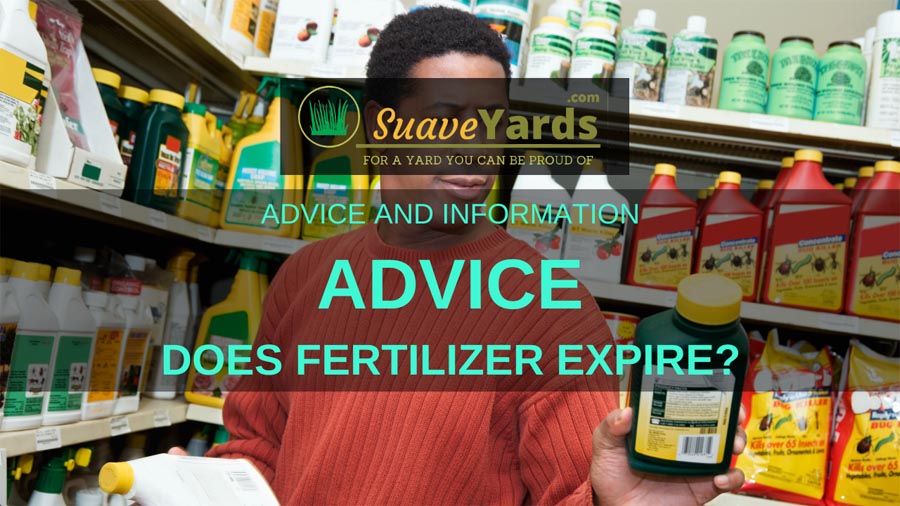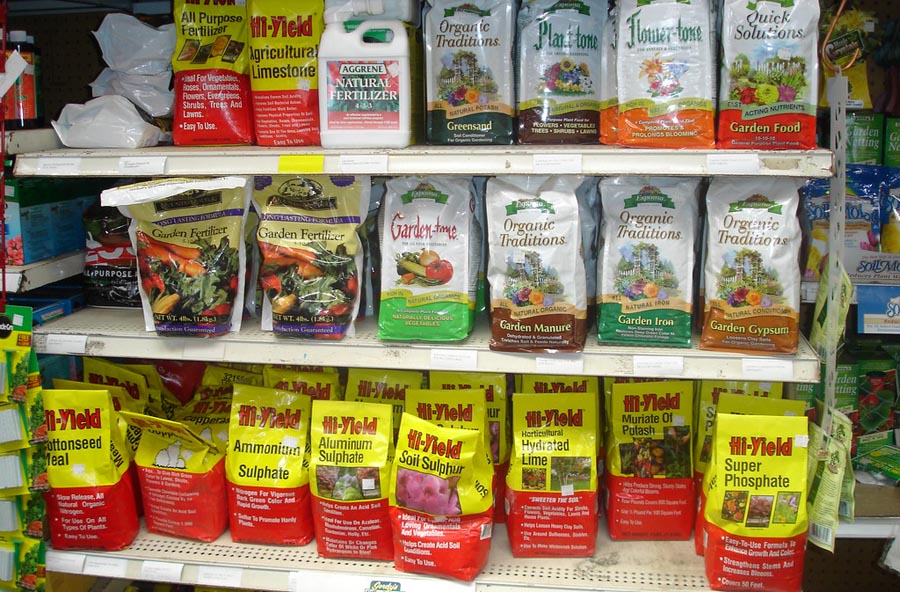
Does fertilizer expire? It really depends on what kind of fertilizer you are talking about. But if it does expire, chances are it won’t happen for a long time.
So let’s dig a bit deeper…
Does Fertilizer Expire?
Some fertilizer does expire, and some doesn’t, but, as a rule of thumb, even the fertilizer that does expire has a very long shelf of up to a decade. Granular fertilizer doesn’t have an expiration date, liquid fertilizer can be stored for up to ten years. Store your fertilizer properly, ideally in a shed, and whatever type you have will last for a long time…
Fertilizer 101
We all know that if we want to grow plants, whatever kind it is, we should have fertilizer. It will help the plants grow healthy and thrive abundantly.
It is a substance, chemical or natural, that is fed to the crops to add to their productivity.
What are they made of?
Fertilizers contain essential nutrients in order for plants to propagate.
There are six essential nutrients that plants require:
- Oxygen
- Carbon
- Hydrogen
- Nitrogen
- Potassium
- Phosphorous
Fertilizers contain nitrogen, phosphorus, and potassium, which is why the fertilizer usually has the label NPK, which indicates the proportion of the nutrients contained in the pack.
Then
There are also secondary nutrients that are important for the overall health of the soil and the plants:
- Calcium
- Magnesium
- Sulfur

There are two major types of fertilizers:
I. Synthetic fertilizer
This is the more popular type of fertilizer to use. It’s made of chemicals that possess nutrient elements that would make the plants grow healthy and attractive.
It’s popular because you can easily buy it in stores and its efficiency is so much quicker than its counterpart.
The obvious disadvantage is that it is made from chemicals, which is not really good for the environment.
There are also two types of inorganic fertilizer:
- Nitrogen Fertilizer
Most fertilizers contain the three important nutrients. However, there are times when your soil really just needs nitrogen because phosphorus and potassium are already present.
Nitrogen is important in the process of photosynthesis. It is also an important element in chlorophyll, which gives plants that vibrant color.
Nitrogen fertilizers greatly contribute to positive plant production and its quality.
- Phosphorus Fertilizer
Phosphorus is an important nutrient in terms of cell growth. Therefore, it is an important property for plant’s growth, particularly root advancement.
There are times when your soil has enough nitrogen and potassium but is lacking in phosphorus, hence, this type of fertilizer is present.
Look
The different types of fertilizers indicate that you need to test your soil so you are aware what type of fertilizer you need.
Moving on.
II. Organic Fertilizer
This is the type of fertilizer that is made from natural components. It could either be materials from plants or animals.
It cultivates the soil with carbonic elements that are important for plant growth.
This is preferred by the environment because it is made of all-organic materials. Unfortunately, it works quite slowly as the nutrients are not water-soluble.
Plus
This type of fertilizer also enhances the texture of the soil.
Organic fertilizers can be made from the following organic products:
- Agricultural waste
- Livestock manure
- Municipal sludge
- Industrial waste
Do you want to know more?
Let’s talk about the importance:
We already know that fertilizer can help plants grow healthy as well as thrive. It also makes soil nutrient-rich.
When you put these advantages in a grand scale, it means that people will have food to eat if farmers have fertilizers for their agricultural lands.
There’s actually more!
Fertilizers also increase the plants’ resilience towards pests. It’s not a form of pesticide where pests will stay away, but at least the plants will be strong enough to withstand their presence.
In the same manner, fertilizers will elevate the soil’s water holding capacity. This means that it will keep the soil moist for a longer period of time.
Then
The roots will also become stronger. Not only that, they will grow faster.
The stalks and branches of plants will likewise be stronger.
To top it off, the plants will grow beautiful with luscious flowers and bright green leaves.
In other words
If you want to have a gorgeous garden, you need to properly fertilize your plants.

Properly is the operative word here. There is such a thing as over-fertilizing, which is why you should only apply what’s necessary and needed by plants.
So, what should you do?
Test the soil and know which nutrients it needs more.
Also, this will help you determine soil pH. The soil will have a hard time absorbing nutrients if the pH is not right, whether it’s too low or too high.
Actually
Different plants require different pH. However, the most generic requirement is a soil pH of between 6 and 7.
Now that we’ve covered the basics of fertilizer, let’s move on to its longevity.
Does Fertilizer Expire?
The correct answer is: it depends on the type of fertilizer.
However, it’s worth noting that even if the fertilizer is the kind that does expire, it would take a long time for it to do so. Fertilizers actually have a long shelf life.
Here are the basics of fertilizer shelf life:
NO EXPIRATION:
Granular fertilizer doesn’t have an expiration date.
UP TO 10 YEARS:
Liquid fertilizer can be stored for up to a decade.
However
There is an important thing to note if you want to maximize shelf life of fertilizers: PROPER STORAGE.
That’s right! If you want them to last for a long time–10 years or forever, you have to store fertilizer properly
What happens if you don’t store it properly? It doesn’t actually expire, but it will lose its effectiveness. Here are some of the effects of bad storage practices:
Caking for granular fertilizer
Humidity can produce clumps in your fertilizer, so you need to protect it from too much heat.
On the other hand, if it’s too cold, condensation would also damage the fine texture of the fertilizer.
You need to properly store it to prevent caking.
Possible leaking for liquid fertilizer
Make sure that your liquid fertilizer also has an airtight cover. You don’t want it spilling in the shed.
Firstly, if it spills, you won’t have fertilizer anymore. Secondly, the chemicals could seep into the soil or go into water sources. That could be dangerous when it contaminates food sources.
Can cause fire
Fertilizers are flammable, and the synthetic one contains chemicals that could be combustible. When improperly stored and it makes contact with flammable chemicals or materials, the fertilizer could start a fire.
How do you properly store fertilizer?

Store it indoors
If you have a shed, that would be great. You don’t want the fertilizer inside the house where children and pets could have access to it.
The fertilizer needs to be stored indoors. That’s not enough! The so-called indoors should be well-ventilated and watertight.
Why is it important?
When you put the fertilizer indoors, the fertilizer will be protected from UV rays. Also, when it’s winter, the fertilizer won’t freeze when it is indoors.
You see, heat could eliminate the presence of nitrates, which would make the fertilizer not very effective. Nitrates produce nitrogen, carbon, and sulfur dioxide, which are important nutrients present in fertilizers.
On the other hand
Frozen then unfrozen fertilizer will almost have the same effect. The efficacy of the fertilizer will be diluted.
Make sure it can’t be accessed by children or pets
If you have a shed for your fertilizer, lock it. You don’t want children near that stuff. You don’t want pets to play with it either.
Store on a pallet / shelf
You don’t want the fertilizer to be directly on the ground in case of spillage. The shed should have a shelf or at least a pallet where you can place the fertilizer or packages of fertilizers.

Summary
Does fertilizer expire? It depends on what type you have. Liquid fertilizers can last up to 10 years while the granular one can last forever.
However, its efficacy can be reduced when it is not stored properly. While it doesn’t expire, it may as well be useless if it freezes or if it is stored in a place with high humidity.
Know how to properly store fertilizers so their efficacy will remain intact. You can save money this way considering that fertilizers can actually last for a very long time.
Useful Resources
- Fertilizer Management – Utah State University
- Fertilizer 101: The Big 3 – Nitrogen, Phosphorus and Potassium – The Fertilizer Institute
- Spain Tightens Fertilizer Rules After Dead Fish Clog Lagoon – Washington Post

